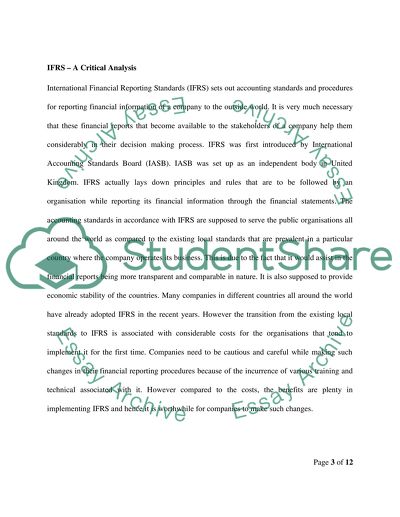Cite this document
(“Financial Advance Accounting: IFRS Essay Example | Topics and Well Written Essays - 2000 words”, n.d.)
Financial Advance Accounting: IFRS Essay Example | Topics and Well Written Essays - 2000 words. Retrieved from https://studentshare.org/finance-accounting/1451372-financial-advance-accounting
Financial Advance Accounting: IFRS Essay Example | Topics and Well Written Essays - 2000 words. Retrieved from https://studentshare.org/finance-accounting/1451372-financial-advance-accounting
(Financial Advance Accounting: IFRS Essay Example | Topics and Well Written Essays - 2000 Words)
Financial Advance Accounting: IFRS Essay Example | Topics and Well Written Essays - 2000 Words. https://studentshare.org/finance-accounting/1451372-financial-advance-accounting.
Financial Advance Accounting: IFRS Essay Example | Topics and Well Written Essays - 2000 Words. https://studentshare.org/finance-accounting/1451372-financial-advance-accounting.
“Financial Advance Accounting: IFRS Essay Example | Topics and Well Written Essays - 2000 Words”, n.d. https://studentshare.org/finance-accounting/1451372-financial-advance-accounting.


